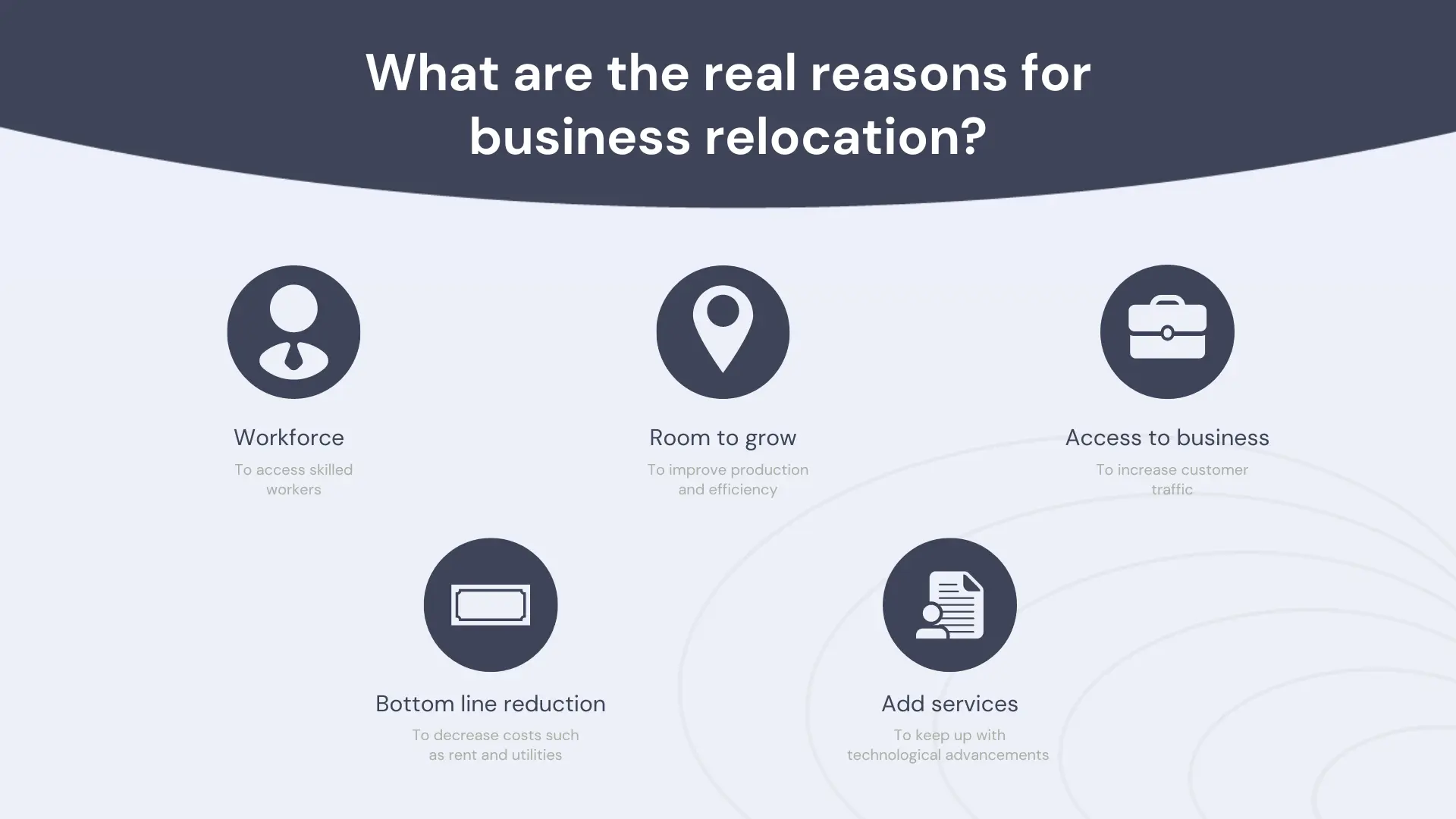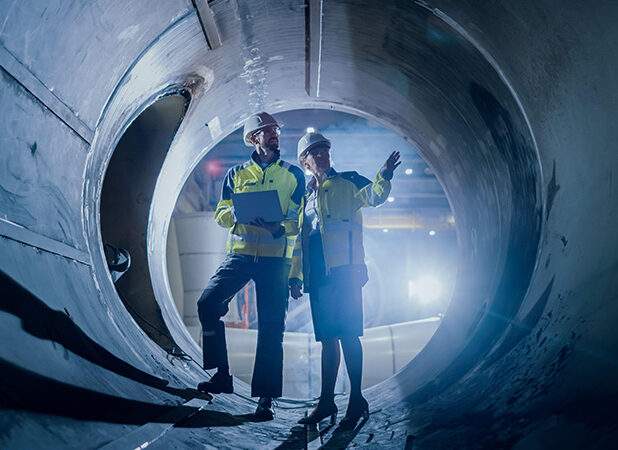In the context of the energy sector, relocation refers to the process of moving employees, equipment, or operations from one location to another. This can be a complex and multifaceted undertaking, frequently involving logistics, human resources, legal compliance, and financial considerations. This is a crucial aspect of maintaining operational efficiency and business continuity, whether driven by business expansion, project requirements, or other strategic decisions.

Components of relocation
Relocation encompasses a variety of activities aimed at moving assets and personnel to new locations. In the energy industry, this can involve:
Employee Relocation: Moving staff members to different locations, either domestically or internationally, to meet the demands of new projects or organizational restructuring.
Equipment Relocation: Transporting machinery, tools, and other equipment necessary for energy production and distribution.
Operational Relocation: Shifting entire operational bases, such as offices or production sites, to new locations to optimize resource use or access new markets.

Read more about reasons for business relocation here.
Importance of Relocation in the Energy Sector
Adaptation to Market Changes
The energy sector is dynamic, with constant shifts in demand, technological advancements, and regulatory changes. It enables companies to remain competitive by positioning themselves strategically to respond to these changes.
Access to Resources
Relocating operations can provide better access to natural resources, skilled labor, and technological infrastructure, thereby enhancing productivity and efficiency.
Risk Management
It can be a part of risk management strategies, helping companies avoid geopolitical risks, natural disasters, or other disruptions by diversifying their geographic presence.
Challenges in Relocation
Logistical Complexities
Moving heavy and specialized equipment requires meticulous planning and coordination to avoid operational downtime and ensure safety.
Regulatory Compliance
Different regions have varying regulatory requirements. Companies must navigate these legal landscapes to ensure compliance with local laws and standards.
Cultural and Social Integration
Relocating employees, especially internationally, involves managing cultural differences, language barriers, and social integration to ensure a smooth transition and maintain productivity.
Best Practices for Effective Relocation
Strategic Planning
Comprehensive planning is crucial for a successful relocation. This involves assessing the needs, costs, and benefits, as well as developing a detailed timeline and contingency plans.
Communication
Maintaining open and clear communication with all stakeholders, including employees, contractors, and regulatory bodies, is essential to facilitate a smooth process.
Professional Assistance
Third-party agencies or experienced consultants can help navigate the complexities involved in the process, from logistical planning to legal compliance. These professionals can provide expertise in:
- Employee Relocation Services: Managing all aspects of relocating the workforce, including visa and immigration support, housing arrangements, and cultural training.
- Logistical Coordination: Ensuring the safe and efficient transport of equipment and materials to the new location.
- Regulatory Compliance: Assisting in navigating local laws and regulations to ensure a smooth transition.
- Project Management: Overseeing every step of the whole process, from initial planning to final execution.
How WTS Energy can assist with your relocation needs?
At WTS Energy, we have a deep understanding of the complexities involved in business relocation and are committed to providing expert solutions that ensure your company’s transition is seamless and efficient.
Conclusion
Relocation is a crucial aspect of the energy sector, allowing companies to adapt to market changes, access new resources, and manage risks effectively. While it presents challenges, strategic planning, effective communication, and professional assistance can significantly enhance the success.
Frequently asked questions
What factors should be considered when planning a relocation in the energy sector?
When planning a relocation, consider the logistics of moving equipment, regulatory compliance, employee impact, and cultural differences. Comprehensive planning and strategic assessment of costs, benefits, and risks are crucial for success.
How can companies ensure a smooth transition for employees during relocation?
To ensure a smooth transition for employees, companies should communicate clearly, provide housing and cultural training support, and assist with visa and immigration processes. Third-party agencies can also help manage complexities.
What are the common challenges faced during relocation?
Common challenges during relocation in the energy sector include transporting heavy equipment safely, navigating varying regulatory requirements, and managing employee transitions, including cultural integration.






